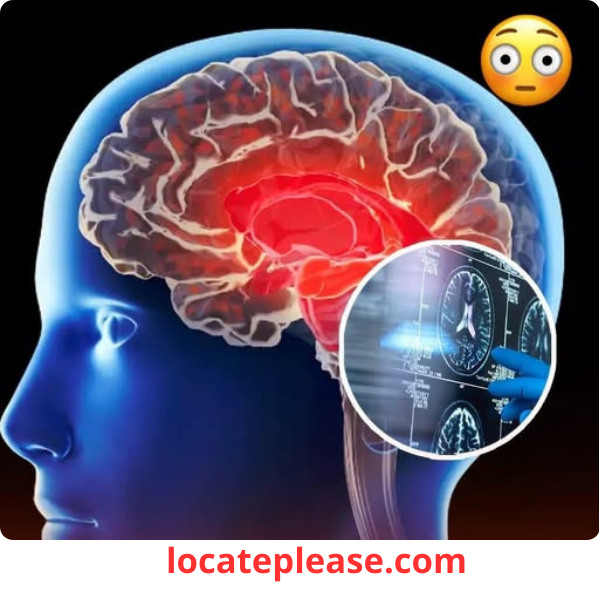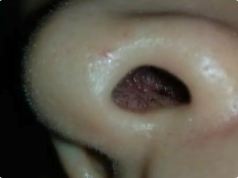Alzheimer’s disease doesn’t announce itself with a siren.
It creeps in silently — decades before memory lapses or confusion become obvious.
By the time most people notice something is wrong, irreversible damage may already be done.
But what if you could see the warning signs years — even decades — in advance?
Neurologists, psychiatrists, and brain health experts now agree: Alzheimer’s begins much earlier than we once thought. And while there is no cure, early detection and intervention can significantly slow its progression — and in some cases, even prevent it.
Dr. Daniel Amen, a renowned psychiatrist and pioneer in brain imaging research, has identified four critical red flags that your brain might be in trouble — subtle changes that could signal the earliest stages of cognitive decline.
Recognizing them now could save your mind later.
🔴 1. Poor Memory — Not Just “Forgetting Where You Left the Keys”
We all forget things.
But there’s a difference between occasional forgetfulness and consistent memory decline.
Dr. Amen urges people to ask themselves:
“Has my memory gotten worse over the past 10 years?”
Warning signs include:
- Forgetting names of close friends or family
- Repeating questions in the same conversation
- Struggling to recall common words or where you parked
- Relying heavily on notes, reminders, or family members to remember daily tasks
🧠 Why it matters:
The hippocampus, the brain’s memory center, is often the first region damaged by Alzheimer’s. Shrinking in this area can begin 20–25 years before symptoms appear.
Early memory lapses aren’t “just aging” — they could be your brain’s cry for help.
🔴 2. Poor Judgment and Impulsivity — The Brain Going “Offline”
Alzheimer’s doesn’t just steal memories — it impairs decision-making.
Dr. Amen describes it as the brain “going offline” — a sudden or gradual loss of the ability to assess risk, solve problems, or make sound choices.
Red flags:
- Making uncharacteristically poor financial decisions
- Falling for scams or suspicious offers
- Wearing inappropriate clothing for the weather
- Mismanaging medications or bills
🧠 Why it matters:
The frontal lobe, responsible for planning, judgment, and self-control, begins to deteriorate early in cognitive decline.
When someone who was once careful becomes reckless, it’s not just a personality shift — it may be a neurological one.
🔴 3. Short Attention Span — Can’t Focus Like You Used To
If you find yourself:
- Losing focus mid-sentence
- Getting distracted every few minutes
- Unable to follow a movie or book plot
- Forgetting what you just read or heard
…it may not be stress or lack of sleep.
It could be an early sign of declining brain function.
🧠 Why it matters:
Attention and concentration rely on complex brain networks. When these begin to weaken, information processing slows, and distractions become overwhelming.
Unlike ADHD (which typically starts in childhood), this kind of attention loss in midlife or beyond may signal early neurodegeneration.
🔴 4. Low Mood and Emotional Changes — More Than Just “Feeling Down”
Depression, irritability, anxiety, and apathy are more than emotional struggles — they may be early neurological signals.
Dr. Amen notes that up to 50% of Alzheimer’s patients experience depression — often years before memory issues arise.
Watch for:
- Unexplained sadness or hopelessness
- Sudden mood swings or irritability
- Loss of interest in hobbies or socializing
- Emotional flatness or withdrawal
🧠 Why it matters:
Brain regions that regulate mood — like the amygdala and prefrontal cortex — are vulnerable to Alzheimer’s-related changes.
Emotional shifts may not be “in your head” — they may be coming from your head.
🚩 Hidden Risk Factors That Damage Your Brain — Are You at Risk?
Dr. Amen emphasizes that brain health is deeply connected to overall health. Certain conditions dramatically increase the risk of cognitive decline — long before you notice a symptom.
Key risk factors:
- Obesity — Excess body fat increases inflammation and insulin resistance, both linked to brain degeneration
- Low energy levels — Could signal mitochondrial dysfunction or hormonal imbalances
- Erectile dysfunction — Often a sign of poor blood flow, which affects the brain just as much as the heart
- Insomnia or sleep apnea — Disrupts brain detoxification during deep sleep, allowing toxins like beta-amyloid (linked to Alzheimer’s) to build up
💡 Dr. Amen’s warning:
“If you have any of these risk factors, now is the time to get serious about brain health.”
✅ How to Protect Your Brain — It’s Never Too Early (or Too Late)
The good news? Your brain is adaptable — a quality known as neuroplasticity.
Even if you’re showing early signs, lifestyle changes can make a profound difference.
Brain-Boosting Strategies:
- Exercise regularly — Increases blood flow and stimulates new brain cell growth
- Eat a brain-healthy diet — Focus on leafy greens, fatty fish, nuts, berries, and olive oil (think Mediterranean diet)
- Prioritize quality sleep — 7–8 hours per night; treat sleep apnea if present
- Manage stress — Chronic stress shrinks the hippocampus
- Challenge your mind — Learn new skills, play puzzles, read, or take up a musical instrument
- Control blood pressure, blood sugar, and cholesterol — What’s good for the heart is good for the brain
- Get regular check-ups — Consider brain scans (like SPECT) if you’re at high risk
🧠 Final Thoughts: Your Brain Is Talking — Are You Listening?
Alzheimer’s is not an inevitable part of aging.
It’s a preventable and often reversible condition — if caught early.
The four red flags — memory loss, poor judgment, short attention span, and mood changes — are not just “getting older.”
They are warning lights on your brain’s dashboard.
And the risk factors?
They’re not just medical issues — they’re brain warnings in disguise.
So don’t wait until you forget your name.
Start protecting your mind today.
Because the best time to prevent Alzheimer’s was 20 years ago.
The second-best time?
👉 Right now.
Your future self is counting on the choices you make today.






